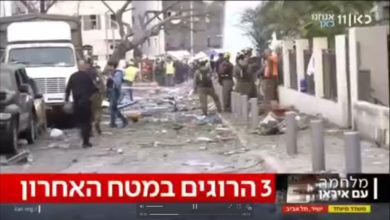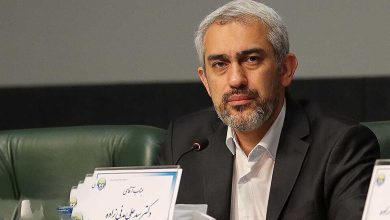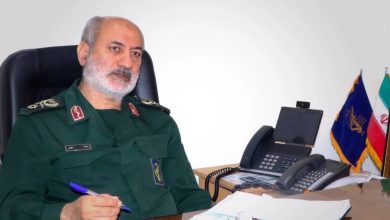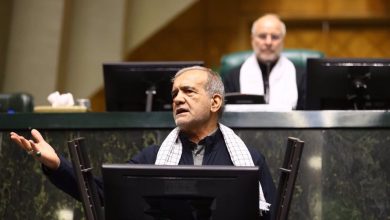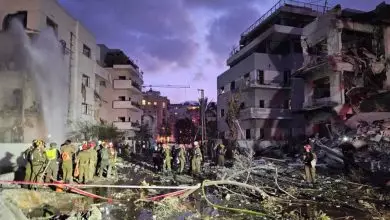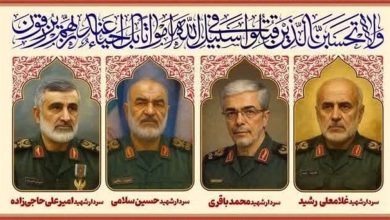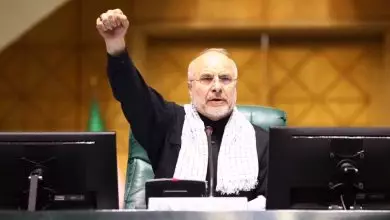Araghchi addresses Iran’s stance on militant presence in Syria
Iranian Foreign Minister Abbas Araghchi has stated that Iran is attentively observing the unfolding situation in Syria. The Islamic Republic's strategy will be contingent upon the stance adopted by militant factions in the Arab nation towards Iran.
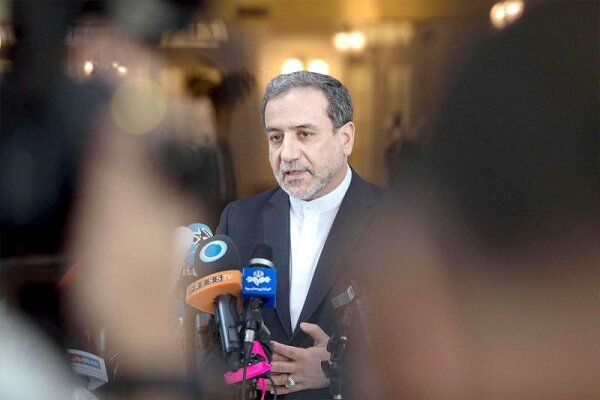
Iran’s Foreign Minister has stated that the collapse of President Bashar al-Assad’s administration was due to the Syrian military’s failure to effectively counter armed groups that rapidly seized control of numerous regions, including the capital, Damascus.
Abbas Araghchi, during a live broadcast on state television on Sunday evening, stated his belief that both the analyses and the reports emerging from Syria concerning the ongoing offensive have been unequivocal. He emphasized that it is the responsibility of the Syrian army to combat opposing factions, in light of the latest regional developments.
He noted that there has long been a covert strategy orchestrated by the United States and the Zionist regime aimed at systematically undermining the Axis of Resistance.
Araghchi asserted that Iran’s security and intelligence structures maintained comprehensive surveillance over the activities of armed groups operating in Idlib and other regions. He further disclosed that all pertinent intelligence had been relayed to the Syrian government and military. Araghchi remarked that, had the Syrian army put up resistance, the fall of Aleppo might have been averted.
The top Iranian diplomat has described the crisis in Syria as a somewhat anticipated consequence of the recent developments in Gaza and Lebanon. However, he expressed surprise at the Syrian army’s inability to effectively counter the advances of armed groups, as well as the rapid pace of these movements.
In a recent disclosure about his meeting with the ousted Syrian president, Araghchi revealed that Assad himself expressed surprise and dissatisfaction regarding the condition of his own military forces.
He also addressed the relationship between Iran and Syria, noting that the two nations have maintained a cooperative partnership for more than 40 years, with resistance being one of the key areas of their collaboration.
Attacks in Syria Breach Terms of Astana Agreement
The Iranian Foreign Minister highlighted Tehran’s advisory mission in Syria, stating that Iranian military personnel were deployed to the Arab nation at the behest of the Syrian government.
Araghchi stated that efforts have consistently been made to encourage the Syrian government to engage in dialogue with its adversaries to address their differences. He emphasized that their cooperation has been limited to offering advice and guidance on the issue.
The senior official emphasized that the recent assaults were essentially aimed at disrupting the Astana talks process. One of the key objectives of these meetings was that once peace was achieved in Syria, the trio of guarantor nations—Iran, Russia, and Turkey—would facilitate political dialogue between the Syrian government and the opposition, including discussions on potential reforms and constitutional amendments, if deemed necessary.
Araghchi reiterated Iran’s longstanding position of advocating for dialogue between the Syrian government and its opposition, even though some factions within the Syrian opposition are designated as terrorist organizations by the United Nations and originate from diverse backgrounds.
**Regional Concerns Mount Over Potential Collapse of Syria**
Increased apprehension is being observed among neighboring countries regarding the possible disintegration of Syria.
Araghchi reported engaging in discussions with representatives from eight regional nations on Saturday. During these talks, there was a unanimous expression of concern regarding the potential fragmentation of Syria and its possible exploitation by terrorist groups. Additionally, there was a shared resolve to prevent the resurgence of Daesh in the region.
During the discussions, there was a strong emphasis on the importance of respecting Syria’s sovereignty and maintaining its territorial integrity. Additionally, an urgent call was made for an immediate cessation of hostilities to pave the way for dialogue between the Syrian government and opposition groups.
He claimed that a conspiracy was actively in progress, with forces already trained and organized against the Syrian government.
Growing concerns have been expressed regarding the potential for sectarian conflict, civil war, or the possible complete disintegration and collapse of Syria, which could lead to its transformation into a terrorist stronghold, Araghchi emphasized.
**Syria Developments Unlikely to Undermine Hezbollah’s Stance**
Iran’s Foreign Minister recently conceded that the Resistance Front has faced significant challenges over the past year. However, he commended the fighters for their remarkable fortitude. He noted that resistance efforts persist in Gaza, while the Zionist regime has not yet succeeded in securing the release of captives.
Regarding Hezbollah, he remarked that although the Lebanese Resistance Movement faced significant setbacks, it managed to swiftly reorganize. The question arises as to why the Zionist regime agreed to a ceasefire. The only plausible explanation is Hezbollah’s steadfast resistance that compelled the regime to acquiesce to a truce.
He emphasized that resistance is both an ideology and an institution, experiencing various fluctuations over time. Furthermore, he highlighted that Hezbollah currently possesses sufficient weaponry, equipment, and infrastructure to sustain its resistance efforts for the upcoming one to two years.
Hezbollah’s leader, Martyr Sayyed Hassan Nasrallah, has passed away, marking a challenging period for the organization. However, this is not the first such instance, according to Araghchi. He emphasized that the Resistance is driven by an ideology rather than conventional warfare, which renders its eradication implausible.
**Appeal for the Protection of Diplomatic and Religious Sites in Syria**
Araghchi emphasized that Iran is carefully observing the ongoing developments and will tailor its strategy based on the stance that militant factions within the Arab nation take towards the Islamic Republic.
“We are currently observing the formation of the new government in Syria. If a government emerges that we recognize, it will be only natural for us to hand over the Syrian embassy in Tehran to the new representatives,” he stated. “Until that time, the existing ambassador and staff will continue their duties at the embassy.”
Araghchi emphasized discussions with multiple parties in Syria focusing on the security measures for the Iranian embassy in Damascus, the consulate in Aleppo, and the protection of revered holy sites.

